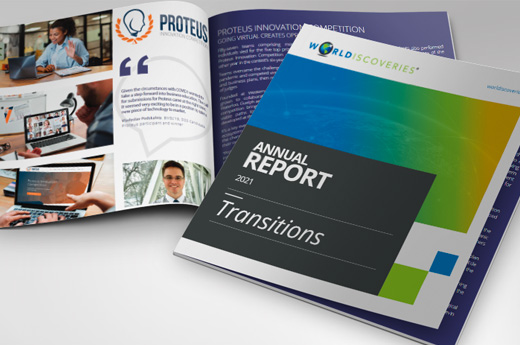The Mini-Medical Innovation Fellowship (MIF) is a program organized by WORLDiscoveries to introduce the biodesign process approach to medical innovation. It is open to Western’s medical health professional and engineering students, as well as practicing clinicians based in London, who are interested in medical innovation.
A shorter spin-off of the full Western Medical Innovation Fellowship, the aim of the Mini-MIF program is to train entrepreneurial participants to use a design thinking-based approach to address clinical problems.
Entering its second annual cohort, the program recruited four clinicians from Children’s Hospital – London Health Sciences Centre, as well as 16 students from Western University working towards a professional medical health or engineering degree. Each clinician was paired up with two medical health professional students and two engineering students.
The four multidisciplinary teams worked on a clinical problem in the areas of paediatric neurology, cardiology, gastroenterology, and emergency medicine.
During the 16-week program, participants attended weekly 2-hour webinars, which covered topics such as need statements, market research, solution generation, intellectual property, business models, and pitching. In addition, the teams spend several hours each week working on researching the clinical problem and ideating a solution.
Throughout the program, the teams received mentorship from Dr. Eveline Pasman, interim director of the full MIF program, current MIF fellows Malcolm Eaton, PhD, and Sydney Robinson, MESc’21, and other mentors with a background in medical innovation and entrepreneurship.
At the end of the program, each team then pitched their project to each other and invited guests – including distinguished judges from industry – for the chance to win first and second place prizes.

The paediatric gastroenterology team, consisting of Dr. Dhandapani Ashok and students Jessica Burford, Ashritha Durvasula, Mia Van Oirschot, and Iryna Liubchak, took first place pitching the MagScope, a novel endoscopy tool for retrieval of foreign objects in children, winning $1500.
“As a nurse leader, I am committed to amplifying nursing voices. I believe that nurses have valuable insights and perspectives that must be considered when creating medical devices used in practice,” said Burford. “The Mini-MIF experience allowed me to bring my unique nursing perspective and patient focus to our interdisciplinary team to contribute to creating an innovation that promotes both patient safety and enhances the user experience.”

The runner up was the Paediatric Emergency Medicine team, consisting of Dr. Rod Lim and students Shaemus Tracey, Clara Malak, Devanshi Shukla, and Leah Hatcher, who worked on the AmbuTape, a product that will make medication dosing in emergencies outside of the hospital easier and safer, winning $1000.
The other two Mini-MIF teams consisted of:
Paediatric neurology team
- Dr. Andrea Andrade and students Jason Roh, Sydney Wilson, Caleb Thompson, and Abrar Ahmed
- Project: NeuroExpert, a way to facilitate getting paediatric patients with possible epilepsy to the correct specialist in the shortest time possible
Paediatric cardiology team
- Dr. Luis Altamirano-Diaz and students Grant Dickey, Edward Wang, Amir Bagheri, and Mete Isiksalan
- Project: Family Challenger, a unique multi-platform video game that provides an accessible way for young children and their family to participate in a healthy, active lifestyle together
The next Mini-MIF program will launch in winter of 2023.


